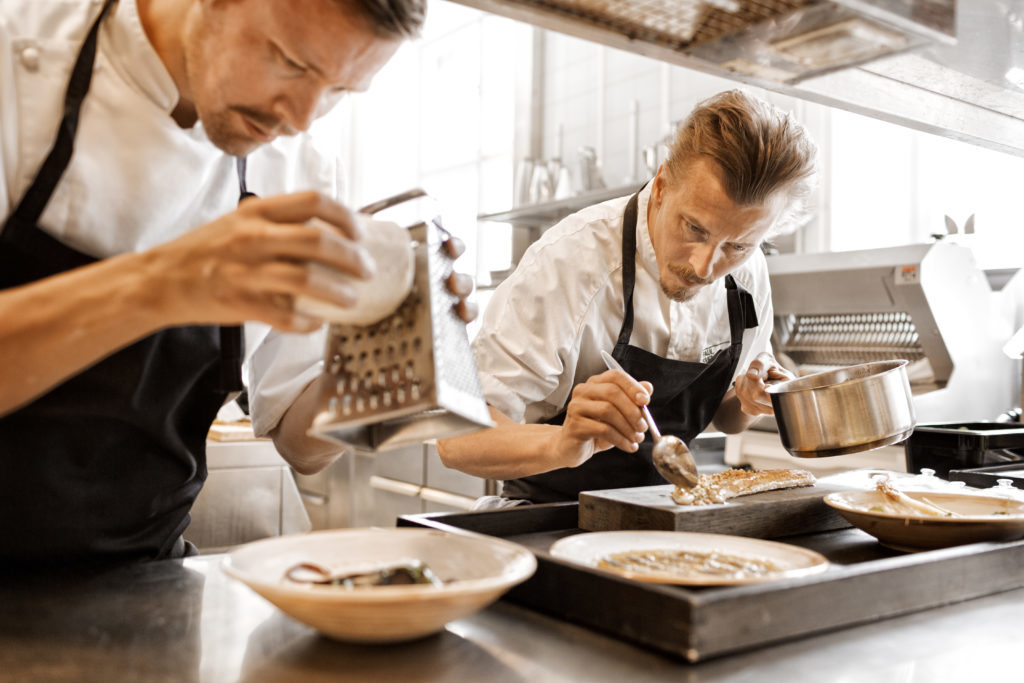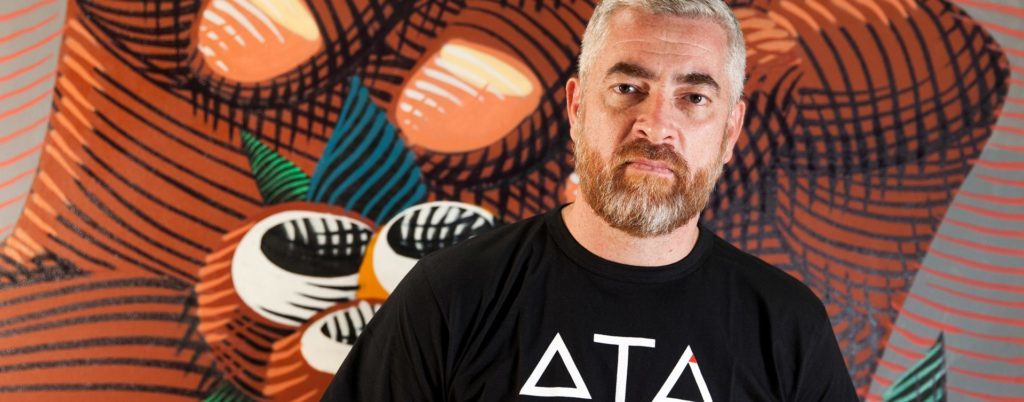
On an unconventional panel of researchers, chefs and practitioners, Line Gordon, Deputy Director of the Stockholm Resilience Centre, member of EAT’s Board of Directors and a contributing author on the EAT-Lancet Commission, asked how gastronomy – the art of eating well – can enhance environmental stewardship. She was joined by EAT’s Science Liaison Officer, Brent Loken, who brought a practitioner’s perspective to the conversation.
Gordon’s research describes what she calls gastronomical landscapes – the spaces and linkages where food is produced and transformed by chefs and food innovators into sensory experiences and pleasureable eating. In Sweden, growing public interest in gastronomy as a cultural experience has produced a new generation of chefs who are embracing and developing a contemporary style of modern, Nordic cuisine. Many of them work closely with food producers, building new relationships between urban and rural communities. These connections have formed the gastronomical landscape that Line Gordon’s research helps us understand better: Specifically, she is uncovering how an increasingly powerful gastronomic movement contributes to managing and protecting the environment – what Gordon calls ”biosphere stewardship”.
Her case studies investigate the impacts of new narratives about food that emphasise the role of seasonality, environmentally sustainable practices, local biological-cultural heritage and the amazing food that can be born from a ”creativity of constraint”, when nature is allowed to lead the way.

EAT’s Brent Loken added that though food service has huge potential to make these changes happen, we still need scientific answers to questions about what really constitutes a sustainable and healthy diet, issues the EAT-Lancet Commission is working to resolve.
Though gastronomy as a cultural phenomenon can inspire consumers to change the ways they eat, by encouraging them to find sensory connections with healthy biospheres through food and cooking, the term is also associated with elitism. Some have questioned the scalability of gastronomic culture as a pathway to change because it is available mainly to a small, wealthy urban class. Jamila Haider, an SRC PhD researcher, addressed this criticism as part of the gastronomy panel, describing experiences from her fieldwork that offer a counter-narrative.
In Afghanistan, Haider met a baker who was embarrassed to be photographed next to bread he’d baked from local grains, varieties adapted to withstand harsh environmental conditions and conserve resources. The dark, heavy, complex and nutritious loaf was seen as archaic in comparison to the light, fluffy bread that can be made from wheat shipped to communities as food aid. Rather than reinforcing elitism, gastronomy has the power to return value to these complex local biological cultures and the people who manage them, argued Haider, who is also the author of a prize-winning cookbook compiled over years of working in Afghanistan and Tajikistan.
For EAT, a key goal is to encourage and create partnerships between the very different groups that think about and work with food. Under the umbrella of gastronomy, we see how new connections are made and how transforming the food system can become more than a pressing social and ecological challenge: It is enhanced with a sense of creativity, pleasure and exploration.
EAT recently launched the Plant Forward 50 list, a collaboration with the Culinary Institute of America, celebrating fifty global chefs who are advancing sustainable eating through gastronomy. The list shows how new gastronomical landscapes are taking shape around the world.

Paul Svensson, chef at Stockholm’s Fotografiska Museum and member of the Plant Forward 50, joined the panel at Resilience 2017 to talk about the connections and stories these landscapes are bringing to the public. ”Today,” he said, “no ingredient is rare anymore, it is the knowledge behind things that is rare. So running a restaurant should be about telling a story [and] being an ambassador to the soil.”

A deep dive into the work Plant Forward chefs are doing reveals fifty individual and distinct ways of connecting with nature, landscape and local food cultures, and developing old and new knowledge. From Alex Atala, who is convincing Brazilians to reimagine the Amazon as a place where quality ingredients are produced – not an obstacle to agriculture, to Mathias Dahlgren who is pioneering vegetarian eating in meat-loving Sweden and Alice Waters’ school garden movement, they’re finding pathways to engaging consumers in a food transformation that places sustainability front and centre.
But if we want to turn the current gastronomic trend into real change, we must keep working to ensure that these landscapes are open and accessible to everyone, and that food producers are properly credited for the amazing contributions they’re making to this edible modern art. And to achieve that, chefs need to stay in close conversation with scientists and policy makers, just like they were at this week’s Resilience 2017 conference.
See the complete list of Plant-Forward Global 50 Chefs here.